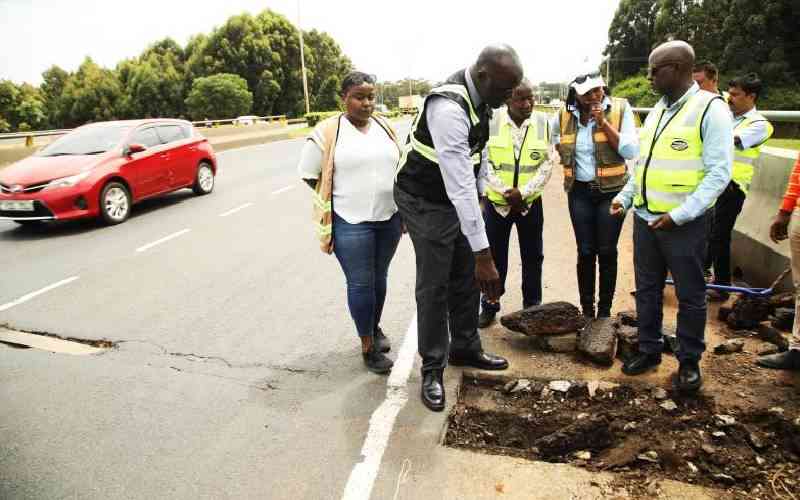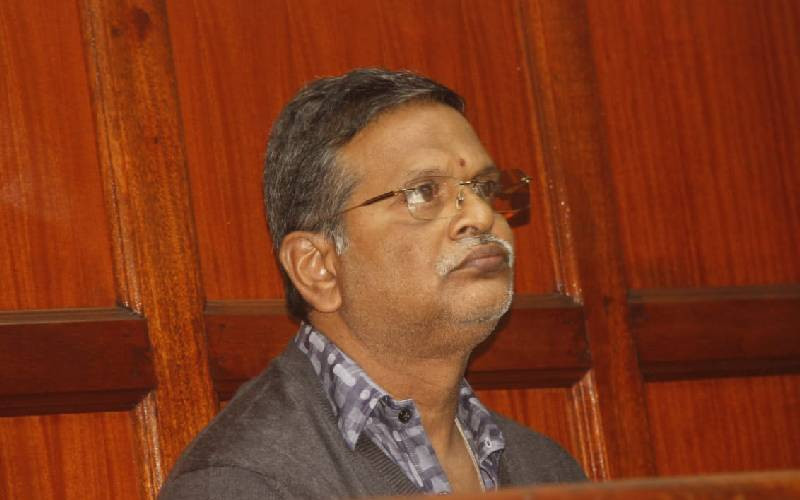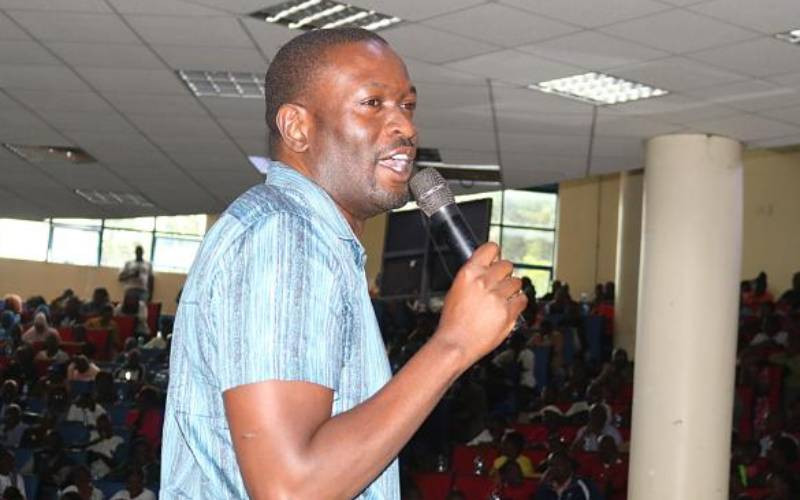
Residents living on riparian land in Nairobi have decried the government's directive to vacate the area without giving them an alternative place to relocate to.
Civil society and human rights groups also weighed in on the ongoing forced evictions on riparian land saying it's in contravention of the Constitution and gross violation of fundamental human rights.
"The government told us on Saturday we should vacate by Monday, without giving us an alternative place to go. We do not know what to do or where to go," said Erick Omondi, a resident of Kambi Moto, located near Nairobi dam.
Edwin Otieno lamented the short notice issued by the government and appealed for more time to look for another house.
"We should have been given more time to look for a place to relocate to. We have already paid this month's rent and I do not know where to get money to pay rent for another house which is hard to find. We wonder where they want us to go," said Otieno.
This comes despite the pronouncement by the government that it is facilitating logistical support, alternative accommodation and essential supplies to affected people.
"The government has arranged alternative accommodation for those affected and they will be considered for social housing on a priority basis," said the government spokesperson Isaac Mwaura.
- Dozens of cholera cases reported in flood-hit Kenya
- 17 cases of diarrhoea reported in Kilifi IDP camp
- Indian naval ship docks with relief food and medicine
- Woman gives birth to twins at rescue camp
Keep Reading
Kenya Human Rights Commission (KHRC) has termed the demolition of houses on riparian land an injustice targeting the poor.
"Even before the government’s deadline elapsed, and without sufficient notice or proper consultation, bulldozers descended on the Mukuru Kwa Reuben and Kiamaiko areas in Nairobi in a case of forced and arbitrary eviction that left thousands of locals homeless. Yet, more affluent neighbourhoods that flooded even more and sat on riparian land were left untouched, highlighting a selective, punitive, and discriminatory expedition," reads a statement by the KHRC.
KHRC said the evictions contravene the Constitution, the United Nations Guiding Principles on Evictions, the United Nations Guiding Principles on the Assistance and Protection of Internally Displaced Persons (IDPs), and the latest Cabinet’s decision to relocate and evacuate affected families humanly.
"Indeed, forced evictions of this nature are prohibited in all circumstances for grossly violating fundamental rights and freedoms, including the rights to adequate housing, food, water, health, education, work, security, human dignity, fair administrative action and freedom of movement," reads the statement.
This comes at a time when Kenyans have been urged to plant trees in honour of the people who have died due to floods.
Environment Cabinet Secretary Soipan Tuya said planting trees will mitigate the effects of environmental degradation.
"The deaths of 228 Kenyans, displacement of many people and destruction of our infrastructure could have been mitigated if we had planted many trees that would be able to hold soil during the rainy season," said Tuya.
The CS was speaking at Kanyariri Anglican Church of Kenya (ACK) in Kabete, Kiambu county where together with her Labour and Social Protection counterpart Florence Bore they attended Sunday service and a funds drive to renovate of the church.
Tuya announced that within this week when rains are expected to reduce, a day will be set aside for national tree planting across the country.
The CSs donated mattresses and blankets to victims of floods in Kanyariri.
Meanwhile, the British High Commission in Nairobi has pledged Sh140 million in emergency funding to support flood relief efforts in Kenya.
The funds will go to the United Nations Children's Fund (UNICEF) for emergency humanitarian relief to those most impacted by the extreme weather.
"The funding will enable the provision of cash assistance to approximately 6,900 households in the most affected counties. UNICEF will also provide urgently needed health, nutrition and sanitation services through integrated outreaches which includes the provision of safe water for drinking, temporary sanitation facilities, and hygiene kits to families displaced by the floods," reads a joint statement by the British High Commission and UNICEF.
"UNICEF will also step up its cholera prevention interventions to ensure the health and well-being of those affected are maintained and help prevent the outbreak of waterborne diseases," reads the statement.
British High Commissioner to Kenya Neil Wigan termed the situation facing many Kenyans as a result of the recent extreme weather and flooding as heartbreaking.
"This urgent funding from the UK will help alleviate the suffering of those displaced and impacted by the crisis. We stand with Kenya in this emergency and continue to work closely with UNICEF, the Government of Kenya and other partners to do what we can to support the response,” said Wigan.
So far, at least 228 people have lost their lives as a result of the floods wreaking havoc cross country.
According to the government figures, 164 Kenyans have been injured, while 72 are reported missing.
Approximately 212,630 persons, from 42,526 households have also been displaced; bringing the total number of people affected across the country to 223,198.
 The Standard Group Plc is a multi-media organization with investments in media platforms spanning newspaper print
operations, television, radio broadcasting, digital and online services. The Standard Group is recognized as a
leading multi-media house in Kenya with a key influence in matters of national and international interest.
The Standard Group Plc is a multi-media organization with investments in media platforms spanning newspaper print
operations, television, radio broadcasting, digital and online services. The Standard Group is recognized as a
leading multi-media house in Kenya with a key influence in matters of national and international interest.











